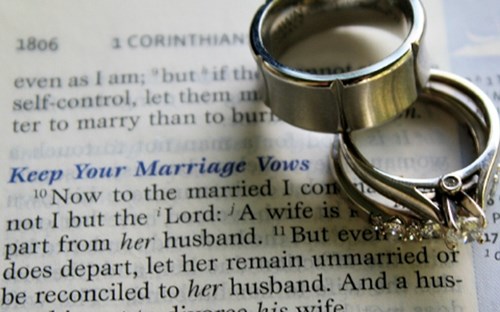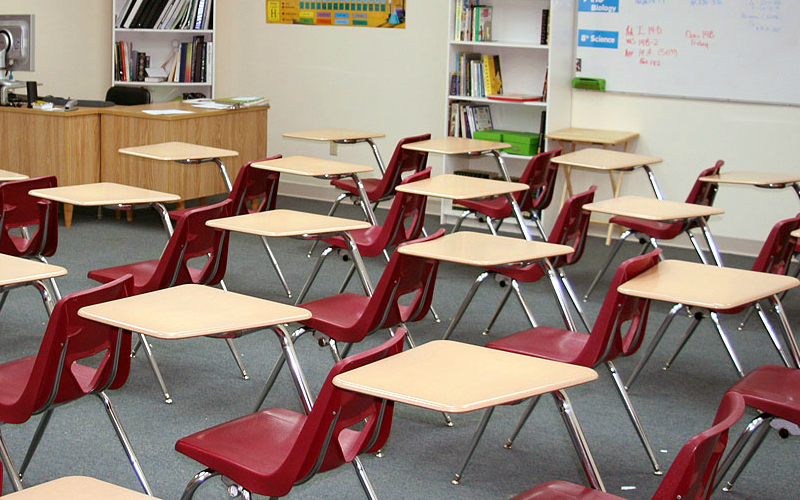In a case about a terminated school teacher, the Fourth Circuit sided with the Roman Catholic Diocese of Charlotte and its 19 schools that are spread across western North Carolina.
The diocese was sued in 2017 by Lonnie Billard, a former substitute teacher, who claimed he lost his position with the school after publicly criticizing Catholic teachings.
A three-judge panel said the school did not violate the civil rights of Billard who in October 2014 announced on social media his plans to marry his partner in homosexuality.
Billard, who had been employed by Charlotte Catholic High School for 10 years, told CNN he was fired two months later.
Two justices held that Billard’s employment made him an integral part of the school’s faith and therefore made him an exception to Title VII discrimination laws under its ministerial exception.
 “We conclude that the school entrusted Billard with ‘vital religious duties’ making him a ‘messenger’ of its faith and placing him within the ministerial exception,” Circuit Judge Pamela Harris wrote for the majority.
“We conclude that the school entrusted Billard with ‘vital religious duties’ making him a ‘messenger’ of its faith and placing him within the ministerial exception,” Circuit Judge Pamela Harris wrote for the majority.
A third judge agreed with the judgment but said in a partial dissent he would have resolved the case on different grounds, CNN reported.
“I think one of the lines from the opinion was something like even if you're teaching Romeo and Juliet, you're still modeling and you're still doing it consistent with Catholic church teachings. You don't have to be just teaching religious doctrine to be a minister,” Nick Reaves, counsel at the Becket Fund for Religious Liberty, said on Washington Watch Friday.
“Your role as a teacher at an elementary school or at a high school is to lead your students in the faith, and in this opinion they pointed to multiple things that the teachers here did from starting class with prayer, taking their students to mass and even integrating the faith into their classrooms,” Reaves told show host Tony Perkins.
Fourth Circuit could be final word
It’s unclear if Billard will appeal, Reaves said.
“We think this is going to be the final word but we’ll have to wait and see," the attorney stated.
A supporting vote for the Catholic schools was not a given considering the recent history of the Fourth Circuit, which in previous rulings has advanced LGTBQ rights. Last month, in an unrelated ruling, the court said state health insurance plans in North Carolina and West Virginia unlawfully excluded gender-affirming care.
It has also ruled against West Virginia’s law to protect girls sports when it barred the enforcement of that law against a 13-year-old boy.

The U.S. Supreme Court has tackled this issue, too, Reaves said, but the Fourth Circuit brought much greater clarity to religious freedom. It has now provided, he suggested, “the broadest and strongest formulation of that doctrine that we’ve seen coming out of any court.”
The ruling strengthens the contract between Catholic schools and their tuition-paying parents who have certain expectations for their children’s education, Reaves said.
“We're presumptively all Catholic school teachers," the Becket attorney said. "All religious school teachers are going to qualify as ministers because these schools consider it vital that all their teachers pass on the faith model. Parents wouldn’t be sending their kids to these schools if they didn’t think the school be not just giving a good education but actually teaching the Catholic faith."
Prior to the decision, the ministerial exemption would apply only to teachers of theology or those in religion classes, Reaves said. Now the court is recognizing how it works on school grounds, in the classroom, every day.
“All teachers at Catholic schools, at other Christian schools, at Jewish schools, have that important responsibility," he said. "It’s not just the religion teacher. It’s anyone who’s interacting with those students and modeling the faith, who’s mentoring the students. They play a vital role in the community.”
Ruling protects integrity of church hiring
Any other ruling would in essence mean the government was choosing employees for the religious schools, Reaves said.
By extension the government would take on hiring and firing authority for the church itself.
“The government would be stepping in and imposing its views about what is or isn’t the correct doctrine, the correct religion,” Reaves said. “That would really entangle the government in a religious question, and the establishment clause of the First Amendment says the government should not interfere in those choices. That’s just not how our country works.”







